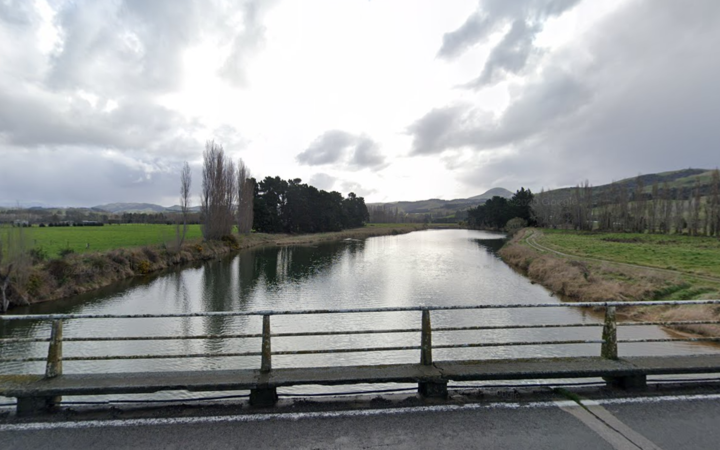
Earlier this month, residents in Waikouaiti, Karitane and Hawksbury Village were told not to drink or cook with their tap water after lead was detected in the reservoir.

However, Southern DHB's Medical Officer of Health Dr Susan Jack said that was not the case.
"For a one off exceedance, the recommendation and guidelines are to increase the testing to work out if there's a possible reason why it was elevated and then if there are obviously more results, then action would be taken," she said.
"Our recommendation was to increase the testing, we didn't advise that they shouldn't go public. But the usual process is that you would not go public with that information if they're following the recommendations of increasing the testing and working out what's going on."
As for any plans to change that process, Dr Jack said the Water Services Bill that would support the new drinking water regulator was out for consultation and that would likely be an area closely looked at.
More than 1000 people have had their blood tested for lead contamination since the no-drink notice was issued with a community testing clinic in place in Waikouaiti from Tuesday until Friday.
Results have already started returning with residents describing a mix of relief and confusion.

Dr Jack said the SDHB was using an internationally accepted threshold for lead blood levels that the New Zealand guidelines were going to be using just as a cutoff for its management.
"We're not planning to reconsider that threshold. Anyone above that 0.24 gets a call from our public health unit and a detailed discussion about what their possible exposures may be," she said.
"We are taking a conservative approach and we're using the internationally accepted reference value of 0.24 micromoles per litre for all ages. This is the equivalent to five micrograms per decilitre (a tenth of a litre) that people may have seen in WHO and other guidelines."

She recommended people consider what their potential exposure points were and to try and reduce them.
"We will be working with people to look at their possible lead exposures so whether that be in your house or from work or for hobbies, so for example, if people have an old house and they're stripping back paint, making sure that our especially vulnerable populations are not being exposed to that and that's being done in a safe manner."
Dr Jack said the SDHB would be guided by the Ministry of Health if anyone has been affected by lead.
"Our bodies do not need it for any biological use so if we do have lead in our bodies, it's not normal."
On Friday, Director-General of Health Ashley Bloomfield confirmed that Dr Heather Uwins-England and Dr Jill McKenzie would undertake the review into the health system response.
Comments
(Dunedin mayor) Aaron Hawkins, this time you are playing with the health of other people - not just silly art projects and other people's money, This is not acceptable from an elected representative, fall on your sword immediately - your only option is to resign.
I agree, both the council and Southern DHB's Medical Officer of Health Dr Susan Jack are wrong. The public should be informed straight away and clean water made available.
Flint lead in water:
"" A study conducted the following year by researchers at Virginia Tech revealed the problem: Water samples collected from 252 homes through a resident-organized effort indicated citywide lead levels had spiked, with nearly 17 percent of samples registering above the federal “action level” of 15 parts per billion (ppb), the level at which corrective action must be taken. More than 40 percent measured above 5 ppb of lead, which the researchers considered an indication of a “very serious” problem. ""
https://www.nrdc.org/stories/flint-water-crisis-everything-you-need-know
and bit of maths:
.39 milligrams per litre
equals 390 parts per billion
Not surprising that all the official reps are blaming each other. This will only increase, and meanwhile there is no verifiable way of ascertaining independently whether water is actually safe to use.
Tank water is the best option; it's easier to be responsible for oneself than it is to hold public officials to account; they are experts in declining responsibility while offering euphemisms as lip-service.
"Tank water is the best option; it's easier to be responsible for oneself..."
That is what I thought until my property was hit by wind drift spray from a helicopter, spraying off a neigbouring property ready to convert to forestry. Just happened to be a DCC owned company too.
Of course you don't realise it at the time, it is a month later when your 18 year old established natives go crispy brown dead, your vege garden dies off, dead patches on your lawn appear and that cold you can't seem to shake off, last over two years....
But hey, clean green NZ right...?
Why are the DCC banging on about just lead all the time ??
Lead is only one of the heavy metals found in NZ catchments.
I'm feeling very uneasy with the focus just on lead.
What's wrong with looking & reporting back to the public just what metals are in water found in the third largest catchment in Otago.
So how can the DCC have any problems with the installation of large domestic water tanks to catch rain water ?












